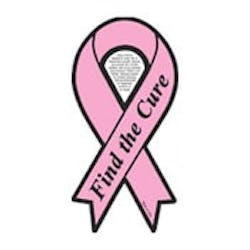Research Fails to Connect Breast Cancer and Wastewater
Silent Spring Institute initiated a study in August examining the idea that nitrogen in wastewater that enters drinking water could increase a woman’s risk of breast cancer. This week, a new study has disputed earlier findings.
A paper by Silent Spring Institute published online in Environmental Health: A Global Access Science Source, found no consistent evidence linking waste water and breast cancer. The study also did not find a consistent association with land use and building in the surface areas that feed into public drinking water wells.
The research was a part of the Cape Cod Breast Cancer and Environment Study, which will continue to examine groundwater contaminants as well as exposure to chemicals that disrupt hormones.
According to The Cape Codder, the study assessed yearly exposures since 1972 to contaminated public drinking water for 824 Cape Cod women diagnosed with breast cancer between 1988 and 1995 and 745 controls. Controls are women who were selected randomly for the study from women who are permanent residents of Cape Cod and similar in age to the women in the study who were diagnosed with breast cancer. The study compared women with breast cancer to the controls. Eligible study participants lived in homes served by public drinking water supplies and never lived in a home served by a Cape Cod private well.
This research was supported by the Commonwealth of Massachusetts, Susan G. Komen Breast Cancer Foundation, National Institute of Environmental Health Sciences, and the National Cancer
Source: The Cape Codder
